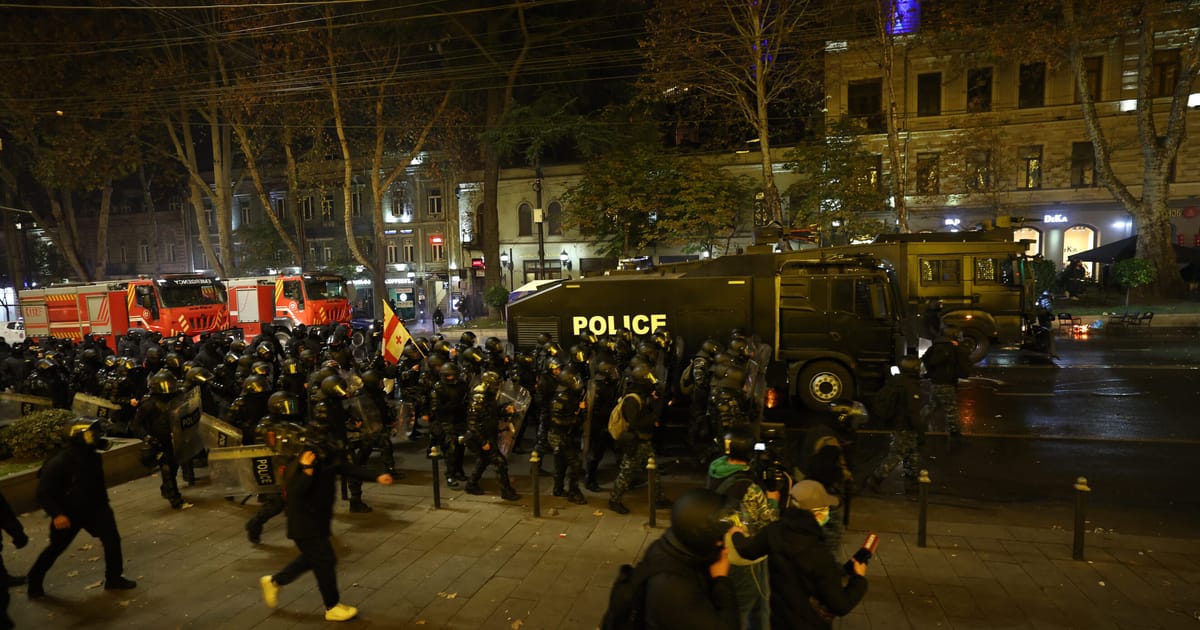“We may be dealing with foreign instigators, organizing violent groups,” said Kobakhidze, who called for an investigation into the outside influences.
The unrest, which has escalated over three successive nights of protests, comes after Kobakhidze said Georgia would no longer actively seek to join the EU and would reject funding from the bloc until at least 2028, despite having previously vowed to become a member by the end of the decade.
A string of top officials including the Georgian ambassadors to Italy, the Netherlands and Lithuania have resigned in protest at the move, as well as Deputy Foreign Minister Temur Janjali.
“What we see is this resistance has really gone beyond previous public demonstrations,” said Tinatin Akhvlediani, a senior researcher with the EU foreign policy unit at the Centre for European Policy Studies. “The ruling Georgian Dream party is in trouble because it’s difficult to see how they can justify making this announcement given widespread support for joining the EU, and it looks like they will use all their forces to silence people.”
On Saturday night, Georgian President Salome Zourabichvili — who has previously accused Georgian Dream of rigging October’s parliamentary elections — insisted the government had “no mandate” to stay in power. The unrest, she said, “is not a revolution, it is stability,” and called for the EU to step in to oversee a new round of voting.
In a resolution passed on Thursday, the European Parliament agreed that the election had been “neither free nor fair,” echoing concerns from international election observers who warned the process had been marred by intimidation and vote buying. Georgian Dream was returned to power with a sizeable majority despite growing concerns over its break with the EU — and broad public support for joining the bloc.
